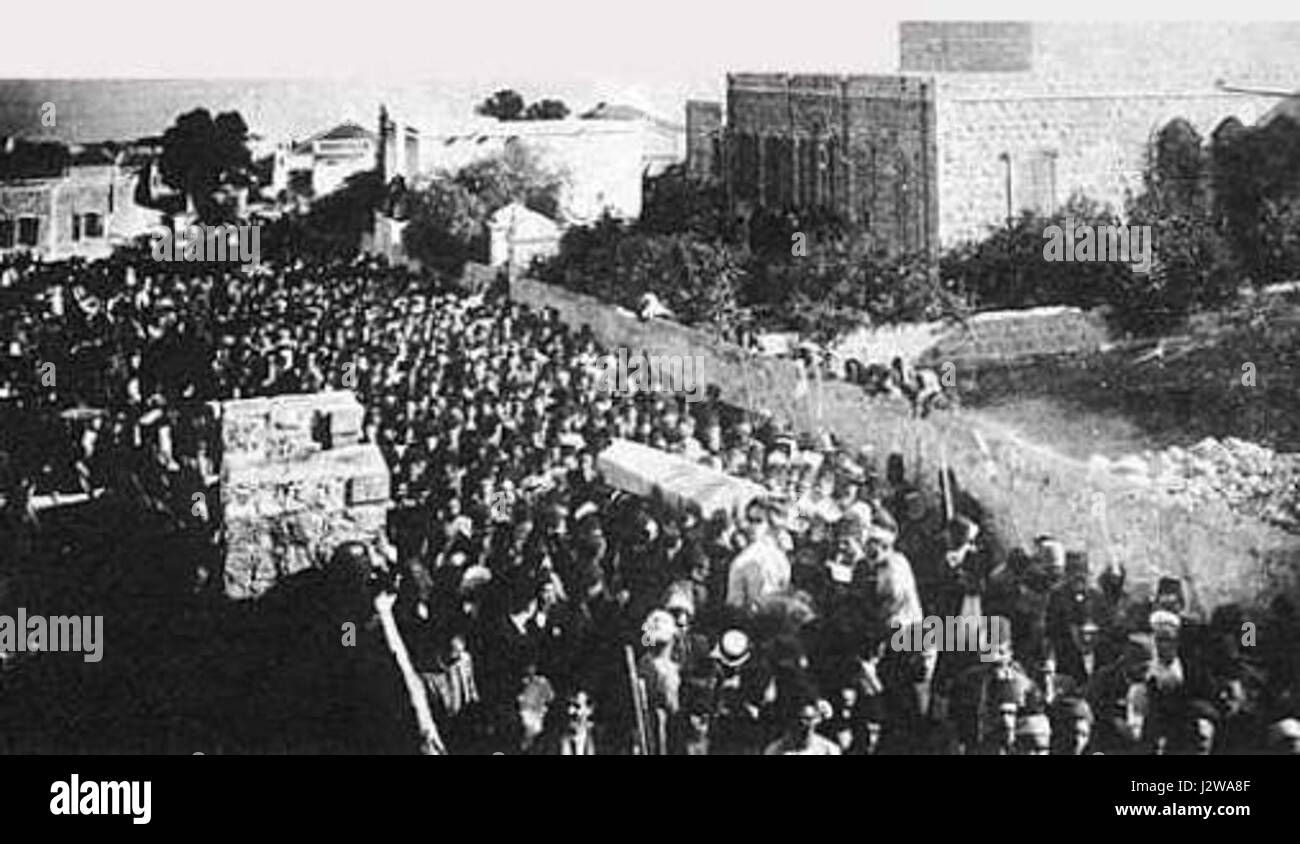In the tapestry of Bahá’í history, the funeral of ‘Abdu’l-Bahá, the son of Bahá’u’lláh and a pivotal figure in the development of the Bahá’í Faith, stands out not merely as a solemn event of mourning but as a profound expression of both faith and community. This event represents a compelling intersection of spirituality, cultural tradition, and communal bonding, prompting one to reflect profoundly on the nature of life, death, and the continuity of the human spirit.
On November 28, 1921, the interment of ‘Abdu’l-Bahá marked the conclusion of his earthly sojourn, yet it catalyzed an enduring reflection on his teachings and their implications. The funeral itself became an extraordinary testament to his life’s work. The rituals surrounding his passing were steeped in Bahá’í principles, which combine to exhort followers to transcend the mundane perceptions of mortality.
The first layer of reflection involves understanding the significance of ‘Abdu’l-Bahá’s life. He is regarded as the appointed interpreter of his father’s teachings, embodying principles of unity, peace, and the elevation of humanity’s collective consciousness. His life was characterized by immense travels, tireless outreach, and indomitable advocacy for social justice. Integral to this discussion is the manner in which his teachings shaped not only the discourse of the time but also the principles that would govern Bahá’í practices for generations.
During the funeral, an outpouring of grief converged with a celebration of his contributions. Thousands congregated to honor him, encapsulating a remarkable facet of Bahá’í engagement with death. The event thus transcended personal loss; it became communal—the embodiment of a collective mourning process that fostered unity among attendees. This convergence highlights a crucial Bahá’í teaching: the oneness of humanity, which urges followers to come together in times of sorrow.
Funerals in many traditions often hinge upon the existential contemplation of life and the afterlife. The Bahá’í perspective diverges from conventional views that typically evoke fear or sorrow. Instead, ‘Abdu’l-Bahá’s passing was framed as a transition, not an end. In this light, his death was perceived not as a finality but as a passage into a realm of eternal existence, resonating with the Bahá’í principle of life after death—an inherent promise that offers comfort and hope.
Attendees were not merely participants in a somber ceremony; they were members of a larger family witnessing the transformative impact of his teachings. This shift in perspective illuminates the holistic Bahá’í understanding of life’s stages. ‘Abdu’l-Bahá’s funeral served as an invitation to explore the dynamics of existence and to embrace the continuity of life beyond material boundaries. This perspective fosters resilience, encouraging followers to seek meaning even amidst grief.
The funeral rituals themselves were also significant in their structure. The proceedings included a procession, prayers, and laudations that upheld the sanctity of his life’s mission. Each segment served to envelop the congregation in a shared experience of reverence and respect. The eloquent tributes paid homage not only to ‘Abdu’l-Bahá himself but also to his divine purpose—the unification of mankind. The magnitude of this ritual showcases how Bahá’í practices are carefully tailored to evoke spiritual reflection, inviting contemplation on broader existential aims.
One compelling aspect of the funeral was the diverse representation among its attendees. Members from different cultural and ethnic backgrounds gathered to honor ‘Abdu’l-Bahá. This event epitomized the Bahá’í teaching of global citizenship, emphasizing that humanity transcends geographical and social boundaries. The celebration of diversity during such a moment of mourning is a poignant reminder that the values of inclusivity and unity are the pillars of the Bahá’í Faith.
Furthermore, the death of ‘Abdu’l-Bahá invoked a deep narrative about leadership within the Bahá’í community. In addressing his absence, the community was prompted to reflect upon its own role as stewards of his teachings. The future of the Faith was shrouded in uncertainty, yet, as ‘Abdu’l-Bahá had exemplified through his life, the principles of love and unity must perpetuate beyond the individual. This emphasis on shared responsibility encouraged a more engaged and proactive community, illustrating the vitality of the teachings that ‘Abdu’l-Bahá championed.
As the community grappled with its loss, it became increasingly apparent that ‘Abdu’l-Bahá’s teachings were rich with significance pertaining to morality and ethical living. His clarion call for justice, equality, and compassion echoed through the funeral rites. Surrounded by the sorrow of loss, attendees were subtly urged to reaffirm their commitment to these ideals, thereby assuaging their grief through proactive engagement in the tenets of their faith. This transformative approach to mourning signifies a broader paradigm shift, proposing that loss can galvanize purpose and inspire action.
Lastly, the legacy of ‘Abdu’l-Bahá continues to resonate deeply within the Bahá’í community. Though physically absent, his influence pervades discussions centered on social justice, community building, and interfaith dialogue. The funeral and subsequent tributes encapsulated a vital reality—while death signifies a departure, it also engenders an enduring legacy, one that inspires generations to come.
In reassessing the funeral of ‘Abdu’l-Bahá, it is imperative to recognize that it functions as a microcosm of Bahá’í teachings about life, death, and the interconnectedness of humanity. This event serves as a clarion call for spiritual reflection, urging individuals to embrace the teachings that can transform personal grief into collective purpose. Such profound insights are not merely bereavement; they represent the indomitable spirit of ‘Abdu’l-Bahá, which continues to inspire and motivate. A deeper exploration of these themes invites followers and inquirers alike to rethink their approach to mortality, encouraging a shift in perspective that nurtures curiosity and fosters understanding.
